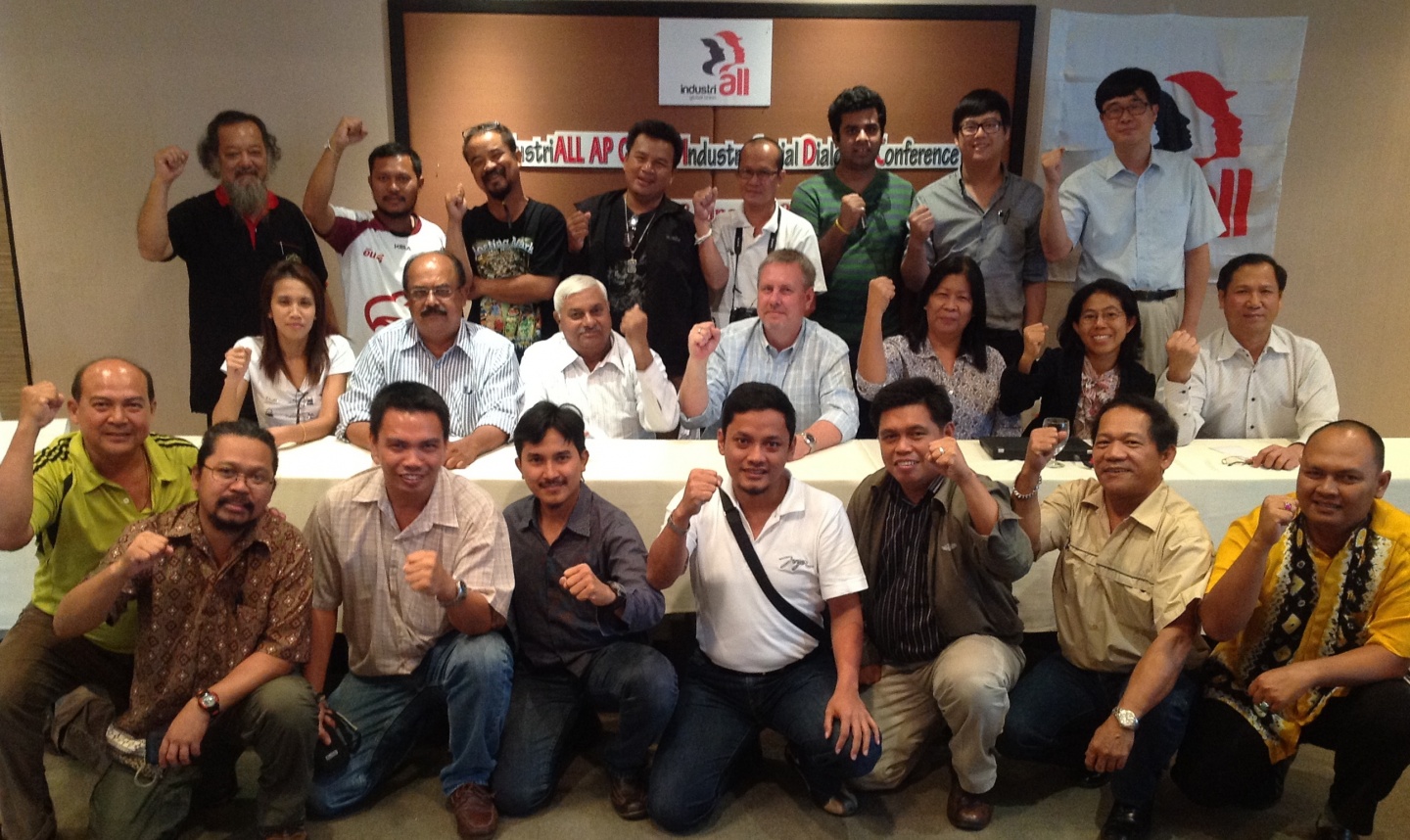25 June, 2013“This meeting changed my mind-set”
On 17-18 June trade union representatives from IndustriALL affiliates in six countries met in Bangkok, Thailand to discuss the future of social dialogue in the cement sector in Asia-Pacific.
For two days the representatives discussed challenges and opportunities of globalization in their sector. In all companies and countries workers are facing attempts by their corporates to save money through cutting labour costs. This is one of the major issues facing the cement sector. The core employees are more and more under pressure because companies seek contract and/or agency labour. The companies do this, although the Asian Pacific market is booming and faces a still rising demand.
The conference was led by IndustriALL in line with the global union's action priority of building trade union power through networks. The value of sectoral networking activities and social dialogue is respected not only by trade unions, but also by companies and employers' organizations in Asia-Pacific.
Siam City Cements (Holcim Thailand) Labour Relations manager Mr. Pijig PromKaew gave a presentation on occupational health and safety policy. The Employers Confederation of Thailand (ECOT) Executive Director addressed the conference, as did the ILO Bangkok representative. Also welcomed was the participation of the Thai Ministry of Labour with two observers.
Forecasts expect an even larger demand in the future. Asian Pacific plants have become cash-cows for their MNC’s, but still the employees are under pressure. Even union-busting activities are executed by the MNC’s, which present themselves on their web-sites and in public as “clean” companies (i.e. in Indonesia at Indocement/ Heidelberg Cement). In response, the trade union representatives decided to reinforce their organizing activities and to include also contract and agency workers, wherever possible.
The participating trade unions will also make use of the international labour standards of the ILO, OECD and others, in order to stop wage dumping and the “race to the bottom”, regarding working and living conditions.
Furthermore the participants were introduced to the IndustriALL discussion paper regarding “Sustainable industrial policy”. IndustriALL Director for the Materials Industry, Matthias Hartwich stated:
Especially in the cement sector, where due to the nature of the production process large amounts of carbon are emitted, we need a discussion about the future of our sector: On the one hand we all need cement for almost any building activity, on the other hand we want to optimize the production process (reduction of clinker factor, alternative fuels) and to protect the workplaces and the employees. Therefore we need to discuss a sustainable industrial policy, which has the needs of the environment, the economy, but also of the workers in mind.
At the end of the conference each country group made a working plan for the near future, mostly about organizing activities. Each action plan was specific to the national circumstances. Korean unions planned to campaign for the legal right to organize precarious workers. Indian unions identified the need to include young contract workers at all levels of their structures. Thai unions want to launch a new training programme for precarious workers, raising their awareness of the benefits of joining the union. Vietnamese unions plan to continue to build on collective bargaining and trade union activities to improve employment conditions in the sector. Philippine unions plan to conduct training activites for contract workers and invite the pre-existing contract worker trade union into the federation of cement unions.
The Indonesian group spokesman reported in summarizing the outcomes of this meeting:
This meeting changed my mind-set. Now we will reinforce our activities to also organize our contract workers in the plant.
The representatives came from India, Indonesia, Korea, the Philippines, Thailand and Vietnam, representing the trade unions in different MNC’s, among them Heidelberg Cement, Holcim and Lafarge, but also from local companies.







